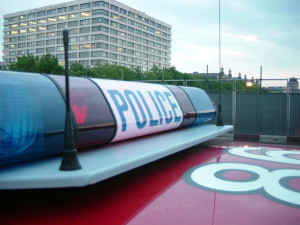 In Commonwealth v. Claudio, the SJC ruled that where “a guilty plea [was] negotiated by a defendant who qualified for an enhanced sentence due to a subsequently vacated predicate offense that had been tainted by [state laboratory chemist Sonja] Farak’s misconduct,” “such a defendant may challenge the guilty plea without being exposed to a harsher sentence than that which he received in exchange for his plea.”
In Commonwealth v. Claudio, the SJC ruled that where “a guilty plea [was] negotiated by a defendant who qualified for an enhanced sentence due to a subsequently vacated predicate offense that had been tainted by [state laboratory chemist Sonja] Farak’s misconduct,” “such a defendant may challenge the guilty plea without being exposed to a harsher sentence than that which he received in exchange for his plea.”
The background was as follows. “In 2013, the defendant … was indicted on two counts alleging aggravated statutory rape pursuant to G.L. c.265, §23A. In addition, he was indicted as a habitual criminal pursuant to G.L. c.279, §25(a), with two drug offenses on his prior record as the predicate convictions…. As G.L. c.265, §23A, carries a maximum penalty of life in prison, the defendant was exposed to a mandatory life sentence for a conviction on the aggravated rape charges. In 2015, the defendant accepted a negotiated plea agreement under which he pleaded guilty to lesser charges without the habitual offender enhancements, and received a prison sentence of from six to eight years…. In 2018, the defendant was identified as a so-called ‘Farak defendant.’ His conviction of possession with intent to distribute heroin, based on certificates of drug analysis … signed by Farak, was, therefore, dismissed with prejudice. As the vacated conviction was one of the two predicate offenses relied on for application of the habitual criminal enhancement, the defendant no longer qualified as a habitual criminal. Before seeking to withdraw his guilty plea, which was negotiated in circumstances that now no longer exist, the defendant requested a preliminary ruling from the Superior Court judge that if he were to succeed in withdrawing his plea, he would not be subject to a harsher punishment as the result of a reprosecution of the rape charges than the prison sentence that he received pursuant to the plea agreement.” The judge then reported the following question: “‘Do the protections from harsher punishment established for “Dookhan defendants” [i.e., those whose prosecutions were tainted by the misconduct of Annie Dookhan] in [Bridgeman v. District Attorney for the Suffolk Dist., 471 Mass. 465 (2015) (Bridgeman I),] apply to ‘Farak defendants’ who are challenging pleas based upon Farak-related grounds relating to G.L. c.279, [§25(a)], predicate offenses?’” Continue reading →
 Massachusetts Criminal Lawyer Blog
Massachusetts Criminal Lawyer Blog







